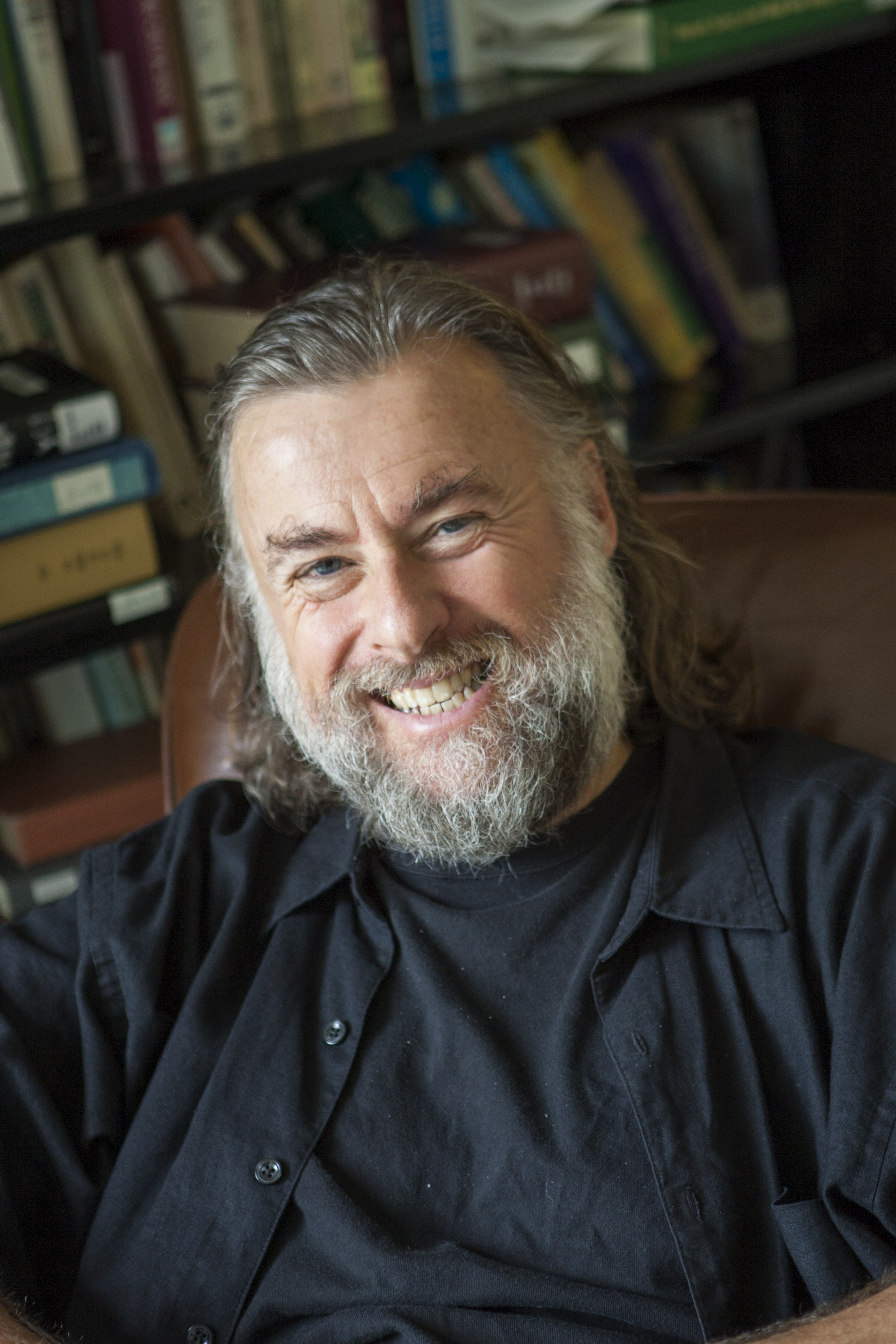Just in time for the beginning of the fall semester, University of Virginia professor Mark Edmundson has published “Why Teach? In Defense of a Real Education” with insights and advice for college students, parents and his colleagues – and he’s not afraid to be provocative.
A University Professor teaching in the College and Graduate School of Arts & Sciences’ English department, Edmundson brings together in his newest book a collection of his essays that address changes in American higher education since the 1990s – changes that he thinks threaten the true purpose of education, which he identifies as challenging individuals to grow to their potential, find out what they truly love and make it an ongoing part of their lives.
Edmundson will read from “Why Teach?” on Sept. 18 at 5 p.m. at the U.Va. Bookstore.
After a dozen years of working with students, he was drawn to writing essays from a teacher’s point of view, he said recently. During that time, along with teaching, Edmundson had fulfilled the scholar’s role of pursuing literary criticism, publishing books such as “Literature Against Philosophy, Plato to Derrida,” and essays such as “Vital Intimations: Wordsworth and the Promise of Criticism.”
While reflecting on his own life and what had changed, he said he has found ways to weave his past experiences with intellectual ideas about reading and teaching – and what makes life worth living.
In these 16 essays, some previously published and some based on talks he gave at U.Va. and elsewhere, Edmundson offers his ideas in three sections: “The Shift,” “Fellow Students” and “Fellow Teachers.”
He calls for “real learning – learning that will help us see the world anew and show us that there could be more to our lives than we had thought.”
The true purposes of teaching and learning, he writes, have gotten lost in the corporate and consumer cultures that have saturated higher education.
Edmundson doesn’t mind being ironic or tongue-in-cheek in some of the essays, he said. One has to be thin-skinned enough to be sensitive and thick-skinned enough to be outspoken, despite knowing the feedback might be harsh. In one essay, he even proposes that all students consider majoring in English.
When it comes to the ways higher education has changed, he said the book’s first essay, “Liberal Arts & Lite Entertainment,” published in Harper’s magazine in 1997, “caused pandemonium ... and was shocking.” Now it has become conventional, he said, that colleges and universities are “customer-driven.”
Students born in the 1970s and later didn’t create the consumer culture they are part of, where advertisements for products bombard people at every turn, where parents and family members tell them what to be. Discovering and following one’s own path, however, can become not only “soul-rewarding,” but also can bring success, he writes – and literature can be that gateway.
He doesn’t eschew thinking practically about one’s future and profession completely. In one essay, based on a talk Edmundson gave to an incoming class at U.Va. several years ago, he asserts that reading great writers is useful in figuring out who you are, and that college should not be geared toward how to make the most money afterward. He revealed that his father, who never went to college, “never managed to get ... a sense of who he might become”; he knew something was missing and wanted his son’s higher education to address the deeper questions of life’s meaning.
(After publishing the piece, “Who Are You and What Are You Doing Here?” in a 2011 issue of Oxford American, it was included in “Best American Essays of 2012.”)
“Education is about finding out what form of work for you is close to being play – work you do so easily that it restores you as you go,” he wrote.
Teachers have a primary role in presenting literature to their students to show them the paths to transformation, Edmundson writes in “Against Readings,” one of the essays in the “Fellow Teachers” section.
Professors in the humanities and social sciences are expected to apply the most popular analyses to their disciplines, whether that’s the ideas of Karl Marx or Jacques Derrida or another from the host of contemporary thinkers. But literary or cultural criticism can derail a student’s chances to discover the author being analyzed, he writes, where she would learn “that there are other ways of looking at the world and other ways of being in the world than the ones she inherited from her family and culture.”
In other words, “The experience of change is at the heart of literary education,” he writes.
“Detached analysis has a place,” he writes in another essay, “but in the end you’ve got to speak from the heart and pose the questions of truth.”
Edmundson is not without hope, however critical he is of today’s culture.
He still believes students and professors can make the most of college life, to “liberate themselves and others into the fields of joy and salutary change that the liberal arts at their best provide,” he writes.
The Publisher’s Weekly review says “Why Teach?” provides “answers in the values Edmundson discovers in becoming an English major: Love for language, hunger for life, openness and a quest for truth or truths. Addressing teachers, students, and parents, Edmundson defends the intellectual and spiritual value, even the usefulness, of the scholarly enclave and seeking knowledge so as to make the lives of other human beings better.”
Among Edmundson’s other books, he published “Why Read?” in 2005. And yes, he’s thinking about completing a trilogy with “Why Write?” based on his wife’s suggestion, he said.
Media Contact
Article Information
August 14, 2013
/content/why-teach-uva-s-mark-edmundson-defends-purpose-higher-education

